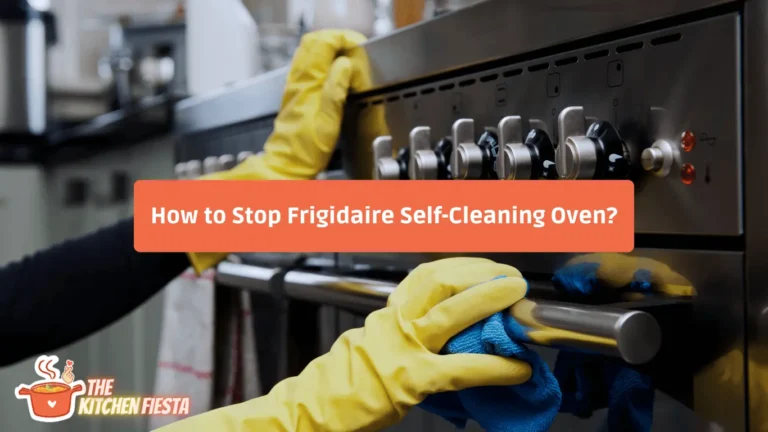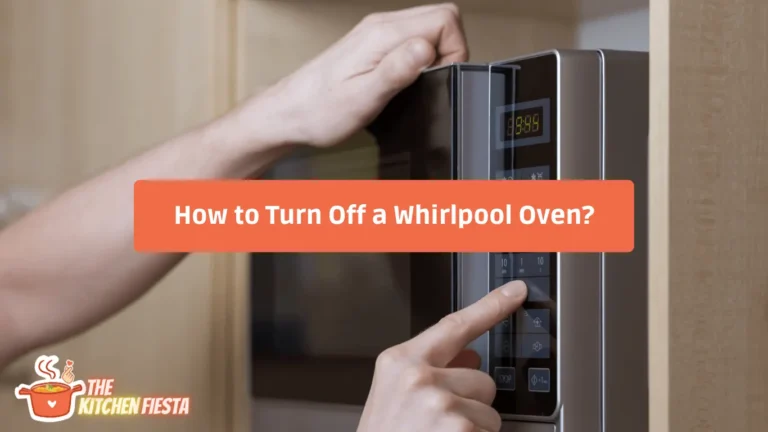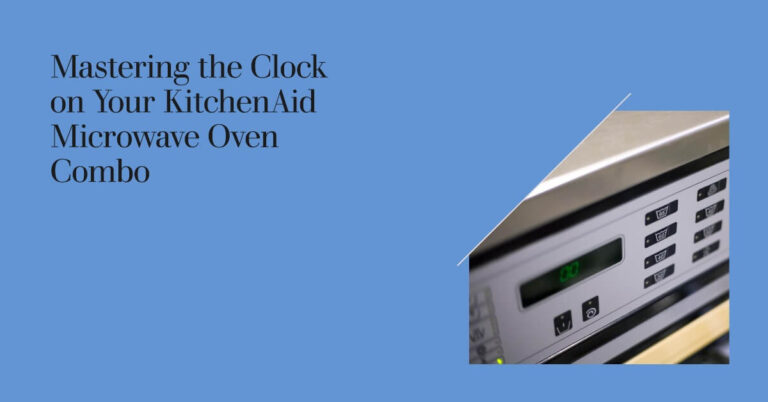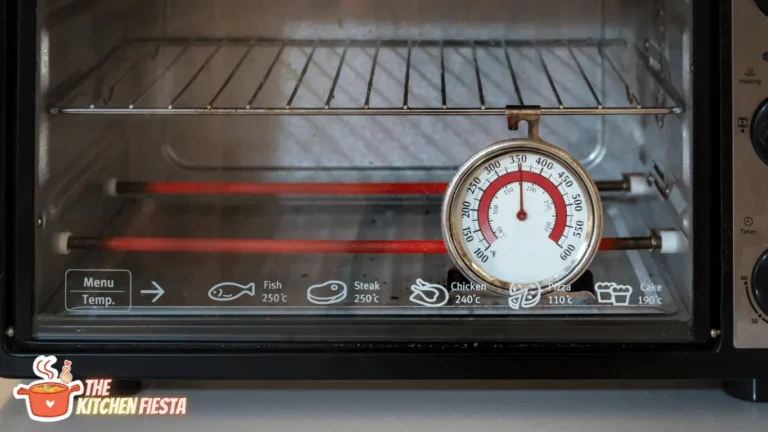Leaving the Oven on Overnight: Is it Safe?
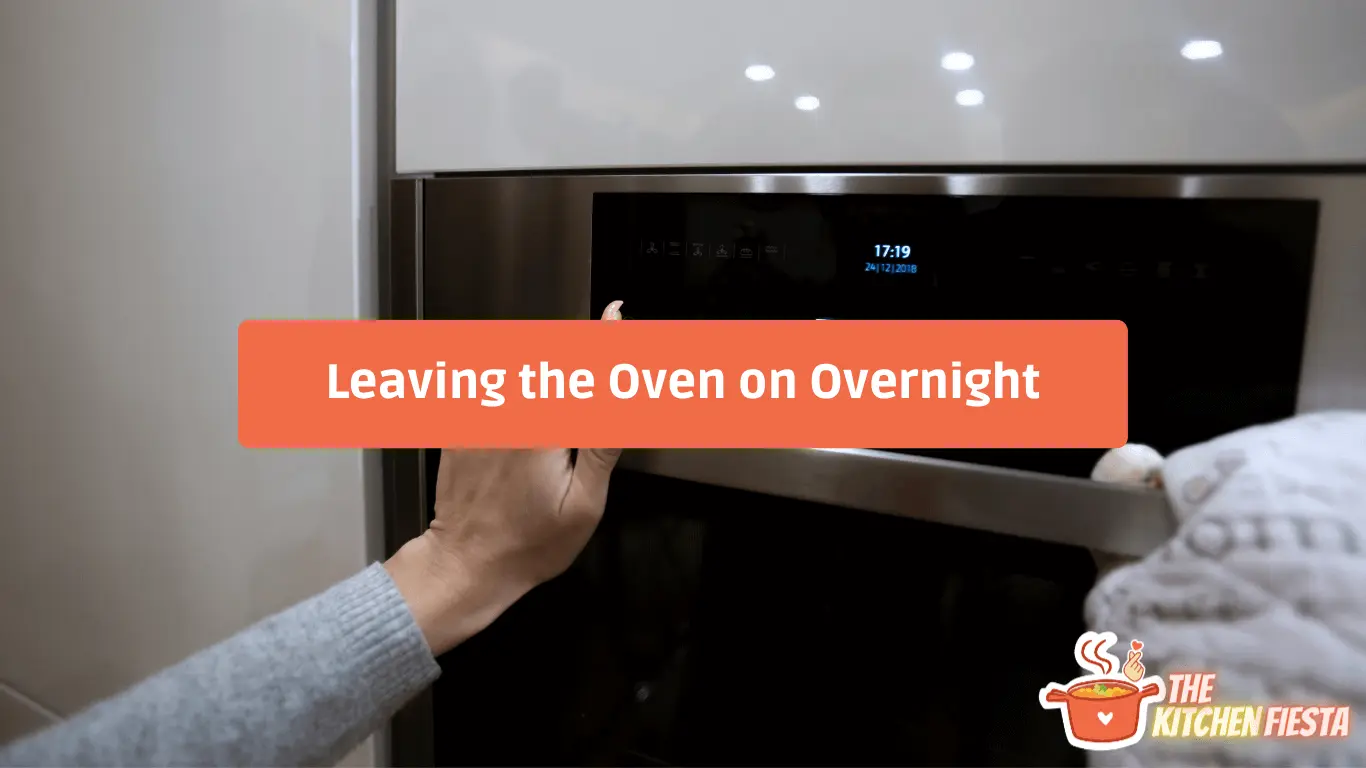
Many people wonder whether it is safe to leave their oven on overnight. While some may think it is a convenient way to cook or prepare food, others may worry about the potential dangers. The answer to this question is complex and depends on various factors. is it safe Leaving the Oven on Overnight?
Leaving an oven on overnight can be unsafe. While it may be safe to bake something at a low temperature of 200 to 250°F for over 8 hours continuously, it is never safe to leave an oven unattended. With either something inside or flammable materials nearby, the risk of fire can be high. Gas ovens can also run the risk of fire and carbon monoxide poisoning.
However, in some cases, it may be safe to leave your oven on overnight, such as when slow-cooking large pieces of meat. Understanding the risks and taking appropriate precautions is essential to ensure your safety.
The Risks of Leaving the Oven On Overnight
Leaving the oven on overnight can be a dangerous practice. Two main risks are associated with leaving an oven on overnight: fire hazards and carbon monoxide poisoning.
1. Fire Hazards
It increases the risk of a fire starting. Ovens are designed to reach high temperatures and can easily overheat if left on for too long. The high heat can cause the oven to catch fire, quickly spreading to other parts of the kitchen and home.
If a fire does start in the oven, you should know how to put it out quickly and safely. Using water to put out an oven fire is not recommended, as it can cause the fire to spread. Instead, a fire extinguisher should be used to put out the flames.
2. Carbon Monoxide Poisoning
Leaving an oven on overnight also increases the risk of carbon monoxide poisoning. Carbon monoxide is a colorless, odorless gas produced when fuels like gas, oil, and wood are burned. If an oven is left on overnight, it can produce carbon monoxide, which can build up in the home and cause serious health problems.
Symptoms of carbon monoxide poisoning include headache, dizziness, nausea, and confusion. Carbon monoxide poisoning can lead to unconsciousness and even death if left untreated. It is important to have a carbon monoxide detector in the home to alert you if gas levels become dangerous.
To prevent the risks associated with leaving an oven on overnight, turning it off when it is not in use is recommended. If you need to leave the oven on for an extended period, check it regularly and have a fire extinguisher and carbon monoxide detector on hand.
Factors to Consider Before Leaving the Oven On Overnight
1. Type of Oven
Before leaving the oven on overnight, consider the type of oven. Gas ovens are particularly dangerous when left on overnight, as they can produce carbon monoxide, which is lethal and can be undetectable without an appropriate device. On the other hand, electric ovens are less risky. However, they can still pose a fire hazard if left unattended for an extended period.
2. Type of Dish Being Cooked
The type of dish being cooked is another factor to consider before leaving the oven on overnight. Foods that require long cooking times, such as roasts or stews, are best suited for overnight cooking. However, dishes that require constant attention, such as soufflés or delicate pastries, should not be left unattended for extended periods.
3. Location of the Oven
The oven’s location is also important when considering leaving it on overnight. The oven should be placed in a well-ventilated area away from flammable materials. It should also be positioned on a stable surface to prevent it from tipping over.
Take the necessary safety precautions. For example, the oven door should be slightly ajar to allow air circulation and prevent overheating. Using a timer or alarm is also recommended to remind you to check on the oven periodically.
Alternatives to Leaving the Oven On Overnight
1. Using a Slow Cooker
One great alternative to leaving the oven on overnight is to use a slow cooker. Slow cookers work by cooking food at a low temperature for an extended time, making them perfect for dishes that require long cooking times. Add your ingredients to the slow cooker, set the temperature and cooking time, and let it do its job. Slow cookers are also great for keeping food warm until you’re ready to eat.
2. Using a Timer
Another alternative to leaving the oven on overnight is to use a timer. Most modern ovens have timers to set a specific cooking time. Set the timer for the required cooking time, and the oven will automatically shut off once the timer has expired. This way, you can ensure that your food is cooked to perfection without having to worry about leaving the oven on overnight.
3. Refrigerating the Dish
If you’re cooking a dish that can be refrigerated, another alternative to leaving the oven on overnight is to refrigerate the dish instead. Cook the dish as you normally would, then let it cool to room temperature before placing it in the refrigerator. When ready to eat, reheat the dish in the oven or microwave.
Conclusion
Unattended cooking is the leading cause of house fires in the US, and ovens can pose a significant risk if left on for an extended time.
While some ovens may have a timer-controlled shut-off feature, this should not be relied upon as a failsafe. Please note that keeping the oven door open after baking can increase the risk of injury, as it can cause serious burns.
When using an oven, it is recommended to always keep a close eye on it and never leave it unattended. If it is necessary to leave the house or sleep while the oven is still on, it is best to turn it off and wait until it has cooled down before leaving.
With these simple precautions and awareness of the potential risks, individuals can ensure that they use their ovens safely and responsibly.
FAQs – Leaving the Oven on Overnight.
How Long Can You Leave An Oven On?
The length of time that you can leave an oven on depends on several factors, such as the type of oven and the temperature setting. Electric ovens can typically be left on longer than gas ovens. However, it is still not recommended to leave them on overnight. Generally, avoiding leaving an oven on for more than four hours is best.
What Are The Risks Of Leaving An Oven On Overnight?
Leaving an oven on overnight can pose several risks, including fire hazards, carbon monoxide poisoning, and damage to the oven itself. Ovens can become extremely hot when left on for extended periods, and this heat can cause damage to the oven’s internal components. Additionally, leaving an oven on overnight can increase the risk of fires and carbon monoxide poisoning, both of which can be deadly.
Can You Leave An Oven On When Not At Home?
Leaving an oven on when not at home is not recommended, as it can pose a significant fire hazard. If something goes wrong with the oven while you are away, no one may be there to respond to the emergency. It is always best to turn off your oven when leaving the house, even if you only plan to be gone for a short period.
What precautions should you take when leaving an oven on overnight?
When leaving an oven on overnight, take precautions: set a timer, keep the door closed, maintain cleanliness, avoid flammable materials, and periodically check for issues.

